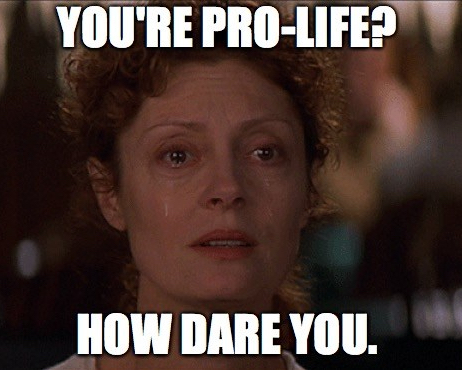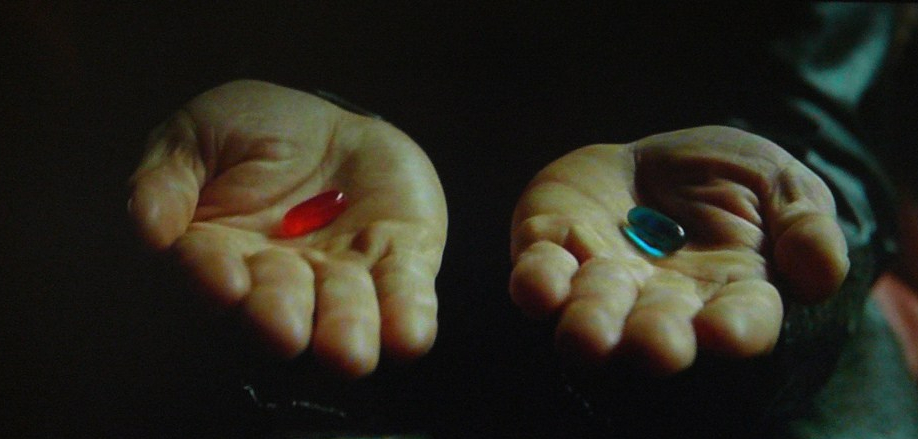Human beings are sinful, so it should come as no surprise that Christianity has a less-than-perfect past. There are lunatics on the fringe of every movement and bad actors in every play. Despite this, when it comes to transforming societies for the better, Christianity is peerless.
In today’s increasingly-secular society, however, detractors and sceptics rejoice in heaping judgement and scorn on Christianity – but it rarely asks, “compared to what?”
The “what” is usually some form of secular utopia. But secular utopias have an abysmal track record, with hundreds of millions killed for ‘the greater good’ by the apostles Darwin, Marx, and Nietzsche. Secularism, wherever it has been officially implemented, has produced some of the most efficient butchers the world has ever known.
And then there’s Islam. Yeah.
So – when a society combines secularism and a charitable view of Islam and calls it “progress,” it jettisons 2000 years of human history. But the history is clear: the life and teachings of Jesus have not only revolutionised our thinking about God but have had a tremendous impact on civilization that continues to this day around the world. Here are four (and a bit) reasons why.
1. Scientific Endeavour
Way back when we knew little about how the world worked, Christians, inspired by a belief that the world was designed and purposed, reckoned that, if they went looking, they would discover a fine-tuned and law-abiding universe. And that’s exactly what they found.
The atheist, by contrast, had no reason to look for anything because built into atheism is the a priori assumption that everything just happened. An atheist expecting to find reason and order in the universe is like someone expecting the mess of a broken egg to spell out the winning lottery numbers.
Christianity, on the other hand, taught that there was a single rational being called God, giving rise to the possibility of scientific laws. And being made in the image of a rational God meant that Christians could employ a rational process to investigate the world in which they lived.
And we don’t have to look hard for evidence of this. Nearly all the founders of modern science were devout Christians (Keppler, Bacon, Boyle, Pascal, Pasteur, Newton, etc.) History professor Rodney Stark writes:
“The leading scientific figures in the sixteenth and seventeenth centuries overwhelmingly were devout Christians who believed it was their duty to comprehend God’s handiwork.”
It’s true that other religions and philosophies were around too at this time, but, as Stark suggests, science could not have arisen from these worldviews:
“Unlike the godless religions of Asia and the capricious gods of other faiths, the God of the Bible was a rational Being whose creation operated on laws that were discoverable and could be applied to solving problems for the benefit of mankind —an understanding essential for the rise of science.”
2. Charity. Lots and lots of charity.
Evolutionary psychology reduces all human behaviour to masked self-interest, so charity within an atheistic secular framework is nothing more than mutual back scratching.
Perhaps this explains the miserable dearth of expressly atheistic charitable efforts in the world (unless it’s to give the middle finger to Christians or to point people away from charities that disagree with them on cultural issues). Other religious cultures, with their caste systems and Jizyas, fare little better.
But Christianity is radically different from everything else on the market. Christianity teaches that all are made equal in the image of God, regardless of social standing, race, ability, or gender (more on that later). Jesus’ ministry called for His followers to serve the neediest, lowest, and most despised in society, even (and especially) if they don’t get their backs scratched in return. In fact, Jesus’ teachings have had such a transformative impact on our charitable thinking that it’s easy to imagine a world akin to a Mad Max film had He never been born.
There are, of course, some worthy secular charities, but they mainly exist within the realm of a cruciform West. And it’s the Christian charities that, as they always have done, lead the way. Take for example the following charities, all founded upon expressly Christian convictions: the Salvation Army, Tear Fund, Children’s Hunger Fund, World Vision, Home Leone, Christian Aid, Christians Against Poverty, Bernardo’s, the Free Burma Rangers – a church-funded group of ex-soldiers who rescue civilians from the grip of ISIS (4:45s into this video shows them going out under sniper fire to rescue a small girl hiding underneath her dead mother’s dress). I could go on, but it’s important to keep a word limit on a blog.
3. Human rights.
Feminists in vagina hats think that they were the first to #TrustWomen, but they’re wrong. Jesus beat them to it 2000 years ago – and it didn’t involve killing any unborn children.
Think about this: the resurrection is a sine qua non of the Christian faith. Without the resurrection, Christianity is hokum and all Christians are dupes. So it’s remarkable that the first people to witness the resurrected Christ – that is, the people in whom the entire validity of the Christian story was entrusted to – were women. And this was at a time when the testimony of a woman was less than that of a dog’s. Put that in your progressive pipe and smoke it.
This high view of women continued throughout the ages. In the Greco-Roman world, it was common practice to throw female newborns out to die from exposure, such was the low status of females. The church, which has always been counter-cultural, forbade its members to do so. The anti-choice bigots.
The rights of children, too, have benefitted immensely from Christianity. In the ancient world, infanticide, much like abortion today, was not only legal but applauded and sometimes considered an act of beauty. Thanks to a right understanding of human value and equality, it was the early Christian church that put an end to it.
We see the same thing today. There is no shortage of secular ideologues who question the value of disabled and unwanted human beings. Some even argue outright for infanticide. This is because they have exchanged the Creator for something in creation (in secular atheism’s case, God is exchanged for materialism – the belief that nothing exists except matter). And in doing so, they have exchanged a high view of humans made in God’s image for a low view of humans made in the image of matter. And how do people treat matter? Well, that depends if it’s useful or not. If you’re useful to society, great, you’re in. If not, then, to quote Richard Dawkins, “abort it and try again”.
In sharp contrast, the concept of true human equality comes exclusively from the biblical idea that human beings are more than the sum of their matter. They are created in the image of God, so the emergence of human rights from Christianity is merely par for the course. This is why there are so many Christian charities. This is why there are so many hospitals (and universities) named after saints.
Of course, as I pointed out at the start, not all Christians – or at least those who claim to be Christian – have been respecters of human rights, but in order to behave that way, they must ignore every fundamental edict of Christ in order to do so.
4. Art, Music, & Literature
Firstly, let me be upfront here and apologise, on behalf of Christians everywhere, for Christian rock.
Right. Now that that’s out of the way, it’s uncontroversial to say that the impact of Christianity on the arts has been immeasurable, influencing such literary greats as Dante, Chaucer, Donne, Lewis, Tolkien, Dostoevsky, Shakespeare, Dickens, etc., etc.
The powerful impact of Christianity on storytelling makes sense because at the core of every story – whether it’s a film, song, or poem – is a saviour (this is why superhero films are so popular) and an objective understanding of good and evil. These innate human truths and desires are only logically and coherently supported within a biblical framework. As Tolkien poignantly put it:
“Man the story-teller would have to be redeemed in a manner consonant with his nature: by a moving story. But since the author of it is the supreme Artist and the Author of Reality, this one was also made . . . to be true on the Primary Plane.”
You’ll not hear anything close to that level of insight coming from Dan Brown.
Christ also greatly inspired the works of greats like Handel, Vivaldi, and Bach (or MC Hammer, if you’re so inclined) – musicians working to honour God with their work (Bach signed all his works with Soli Deo Gloria (“Solely to the glory of God”)) – and the results are pieces of timeless beauty. Not to mention Gospel choirs and all the hymns we’re familiar with.
While there is, of course, plenty of great non-Christian music, espousing secular ideas from the heartfelt to the dangerous to the vapid, Atheists Don’t Have No Songs. That’s because atheism is nothing to sing about – and the atheist soul knows it, even if the atheist doesn’t. And other religions, beyond repetitive chanting, aren’t exactly renowned for their musical output, either.
Then there’s art and architecture, both of which have been magnificently impacted by Christ. While much of modern art trades on the currency of subjectivity, producing art that is literally piss, classical Christian art brings out the best of humanity by pointing us to a higher plane; just look at all the incredible architecture, particularly the magnificent cathedrals of Europe. Humanists can keep their Premier Inn conference rooms adorned with Ikea prints; give me an old church building to look at any day of the week.
Regardless of one’s beliefs, the powerful Christian impact on societies that take the above seriously should be recognised by anyone interested in truth. The bigger question, which falls outside the scope of this blog, is will our secularised society be willing to put aside the Enlightenment myths and acknowledge just how much they have benefitted from living in a culture built on the beliefs they now abhor?
Alas, probably not.








